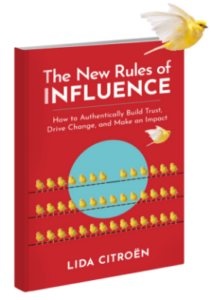This article appeared in my February 2013 corporate and personal branding newsletter. We received such positive feedback that I wanted to share it with you here! Be sure to sign up for my newsletter if you’d like to receive this information sooner.

With the unemployment rate hovering at 8%, those who have a job should, in theory, be counting their blessings. However, we are seeing that not only are there employed versus  unemployed, but also underemployed and under-whelmed workers and employers in the market place today. What should you do if you are one of the lucky employed but hate your job? Maybe you are underemployed; you have your Master’s degree and are answering phones. Whatever the reasons that you dislike or even hate your job, you are smart enough to know that in an economy such as the one we’re in now, it’s not the best idea to up and quit without something else lined up. Jobs are hard to come by and good jobs are even harder.
unemployed, but also underemployed and under-whelmed workers and employers in the market place today. What should you do if you are one of the lucky employed but hate your job? Maybe you are underemployed; you have your Master’s degree and are answering phones. Whatever the reasons that you dislike or even hate your job, you are smart enough to know that in an economy such as the one we’re in now, it’s not the best idea to up and quit without something else lined up. Jobs are hard to come by and good jobs are even harder.
Here are some tips on how to make the most of a job you hate.
1. Networking – Even if you’re in a job that you don’t like or isn’t up to your skills or passion, focus on building your network of contacts (co-workers, managers, clients, vendors etc.) who may help you get into a next job that you’ll love.
2. Invest in your professional development or personal development – Before you’re putting a resume together, start looking for ways you can develop personally and professionally to improve your skills, experience and abilities (i.e. a class, webinar, conference, seminar, etc.). This will make you more valuable in your current position, and may make you more marketable later.
3. Avoid negativity – Having a positive attitude can go a long way in how other people perceive you. If you get caught up in negative gossip or office drama, you run the risk of being asked to leave.
4. Start your job search – While it’s generally not a great idea to abruptly quit your job without having another one lined up (especially in today’s job market) that shouldn’t stop you from searching for next job (but NOT on your current company’s time!). Networking — online and in person — and studying industries, companies and business leaders will help you become more proactive in your career.
5. Talk to your manager about revising your job description – Maybe you don’t currently love what you’re doing, but there are things you would like doing within the job you’re in. Talk to your manager about taking on new responsibilities or working on a different project.
6. Maintain your performance – Even if you hate your job and feel the work you are doing is completely beneath you, it’s important to maintain your performance and always do a good job. Your integrity is reflected in your work. If you accepted the job you are in, then be the best at it you possibly can be.
7. Be grateful you have a job!! Remind yourself that while this may not be your dream job, there are more than 12 million Americans currently out of work.
8. Realize it’s just a job – While jobs are important and the paycheck funds your bills and provides you with what you need, realize that it is just a job and doesn’t define who you are.
9. Help others. One of the best ways to learn to appreciate what you have is by helping others who are less fortunate. Whether its volunteering in your community, or mentoring someone at your company, helping others can increase your exposure, skills and gratitude.
10. Focus on your reputation. As stated above, if you engage in negative gossip, neglect your professional development or forget to network, you can create a poor reputation in the company and industry. Conversely, if you are seen as a team player, someone who brings solutions (not just complains and problems) and is upbeat, then others will be more attracted to you and may create opportunities for your career.
While many jobs fall short of the “dream job” status, there is much to be appreciated and grateful for — work does not define who you are as a person or your value to your community. Your ability to provide for your family and the people who depend on you is more directly tied to your value (rather than the title on your business card or name tag).

